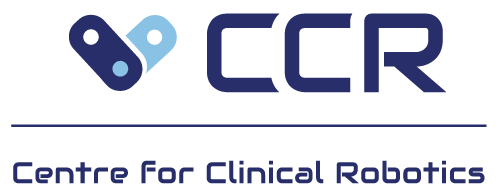SimBotic - Simulation platform for training of robotic surgeons (2024-2025)
It is important for robotic surgeons to train their skills continuously to ensure and maintain the quality and patient safety of robot-assisted surgical operations. The challenge at Odense University Hospital (OUH), however, is that the surgeons can currently only train in the evening and at night, as OUH's training units are only found in the operating theatres and can therefore only be used outside operating hours.
PROJECT PERIOD
Start: 1 August 2024
End: 31 July 2025
Robotic surgery uses minimally invasive techniques and provides improved freedom of movement and precision for operations in hard-to-reach areas. In order to maintain patient safety and ensure continued development and quality in the procedures, it is therefore crucial to offer training opportunities to the robotic surgeons that are not limited by time and access to operating theatres.
AIM
The project therefore aims to give the robotic surgeons the opportunity to train and maintain their skills by developing and implementing a simulation platform for robot-assisted surgery. The simulation platform is intended to be cheaper than the existing alternatives on the market, and to provide the opportunity to train in different ways. By developing the platform internally at OUH, it can be future-proofed and adapted to other types of surgical robots by 3D printing and molding experimental tools and modifying the platform for different procedures.
The platform will consist of three robotic arms, each with an adapter for mounting and activating different surgical instruments. In addition, the system will consist of an operator console and foot pedals for controlling the robotic arms. Various phantoms can be placed on the platform itself, which the surgeons can use to train skills and procedures on.
It is thought that in the long term the platform can be included as part of an introductory course for robot-assisted surgery.
PARTNERS
The project is clinically anchored in the Department of Urology, which contributes clinical experience and sparring to both testing and assessment of the simulation platform. The testing and assessment itself is carried out by the Simulation Centre SimC.
SDU Robotics is responsible for the development, loan and delivery of the solution, while Universal Robots provides the robotic arms.
CCR is responsible for project management and general support of the project's activities.
FUNDING
The project has received funding from the internal Innovation Fund at OUH.

Angelina Stoyanova Wolf
Innovation Consultant
Odense University Hospital, Department of Clinical Development - Innovation, Research & HTA
(+45) 2384 8343 asw@rsyd.dk
